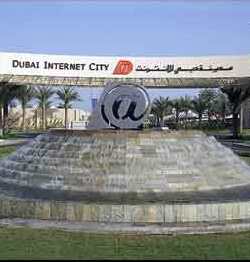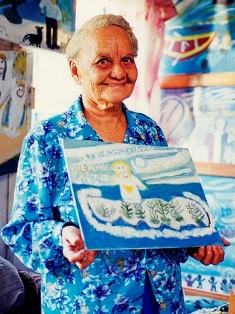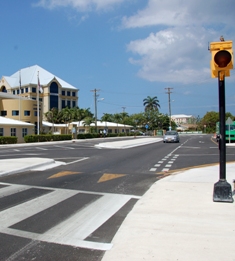Archive for April 10th, 2011

CNS promotes access to information
 (CNS): In the same spirit of reader participation with which we launched our FOI section, today Cayman News Service has started the CNS Library, which will provide ready access to valuable information and a place, in this age of transparency and open source technology, where the people of the Cayman Islands can share documentation. The library will be for public documents only – this is not designed to be a place for gossip or to expose any personal information – but the hope is that this will become a useful resource for the general public, including students and journalists, both local and international.
(CNS): In the same spirit of reader participation with which we launched our FOI section, today Cayman News Service has started the CNS Library, which will provide ready access to valuable information and a place, in this age of transparency and open source technology, where the people of the Cayman Islands can share documentation. The library will be for public documents only – this is not designed to be a place for gossip or to expose any personal information – but the hope is that this will become a useful resource for the general public, including students and journalists, both local and international.
“One of our main goals at CNS has always been to deliver to our readers as much information as possible,” said CNS owner Nicky Watson. “Traditionally, news organizations have been gatekeepers of information – they obtain access to the documents and data and then supply their interpretation of them to their consumers. This is what our hardworking journalist Wendy Ledger does – summarise and interpret the news so that it is easier and less time consuming to digest – but we also, wherever possible, supply the original documents, so that it is available for anyone to read and draw their own conclusions.”
Generally you will find these documents attached to a relevant article in the CNS news pages, but there is also a need to have some documentation in a more accessible format, and this will be the function of the CNS Library.
Over time we will be uploading all the documents we have into our library, including some important laws, with relevant links to more information, and we will also post documents that are sent to us that we think are in the public interest. In addition, if there is a particular document that readers would like to view, the CNS staff will see if it is in our files or post a note to see if any of our readers have it in their possession.
“This is an ongoing and may be a slow process, since it is something that we will work on when we have time, and we are relying on our readers to tell us what they want, point out gaps and to help us collect documents,” Watson said. “This is a project that will evolve as we find out what works and what doesn’t and, as ever, we will be taking note of feedback. However, it is also a never-ending project and one that has enormous possibilities. We could, for example, create a space for photographs if our readers express a desire for this.”
Right now we have begun the process with the Cayman Islands Constitution, the most recent budget and the immigration, labour and freedom of information laws, which we think are some of the most useful. “The laws of the land are not effective if people do not have access to them or know where to find them,” Watson said, “and we have also linked to the relevant entity so it is easy for people to find out more. The FOI Unit, for example, has an excellent guide to making a request but we want to give the public one more pathway to find their website and use this guide.”
She added, “The process gives us and members of the public the opportunity to assess government websites to see if they are up to date, easy to use and comprehensive. One strange omission that we have found so far is that the website of the Employment Relations Department does not appear to have a link to the labour law.”
The link to the CNS Library is on the menu bar. If anyone would like to share a document or comment privately, please email nickywatson@caymannewsservice.com.
Legislators return to work after slow progress
(CNS): Government only managed to push through two pieces of legislation during last week’s Legislative Assembly meetings after members spent several hours discussing the problems presented by immigration laws to fishermen on Thursday. It then faced technical problems with a government motion and extremely heated arguments about the previous administration’s deal with CUC, all of which slowed progress on Friday. Government did manage to pass an amendment to modernise the way ship and aircraft passenger lists are given to immigration and changes to the ICTA law to facilitate the new CCTV but will be returning on Monday to deal with the three new political seats.
Legislators became bogged down discussing the difficulties fishermen and anglers face when they want to go fishing on the spur of the moment but have to jump through cumbersome immigration and customs rules. The issue was raised when the deputy governor brought the immigration bill to facilitate the electronic submission of passenger lists.
Donovan Ebanks, one of the few members of the LA who is not a fisherman, reassured members that the regulations that would accompany the law would deal with streamlining the process which they and their constituents had to face when they wanted to go deep sea fishing outside of Cayman waters and also to facilitate the increasing number of fishing tournaments. The goal of the amendment, the deputy governor explained, was to improve security by having advanced notification of who is coming into the Cayman Islands and to increase efficiency at the airport by knowing who is leaving.
On Friday government had to defer its draft order to add two seats to the electoral district of George Town and one to Bodden Town, increasing the size of the Legislative Assembly, after it was pointed out that the language used in the schedule could have been interpreted as introducing single member constituencies. Although that is supported by the people, it is not a move that the current administration has any intention of introducing.
Minor changes to the Information Communication and Technology Law, which would facilitate government’s use of fibre optics installed by CUC but essentially paid for by their customers for the new CCTV project, dominated Friday’s meeting.
Despite the law being supported by both sides of the House, the issue created animosity between government and opposition when the debate turned into a row over the previous administration’s deal with CUC, which backbench MLA Cline Glidden referred to as a sweetheart deal for the power company.
When the opposition leader tried to demonstrate that the PPM’s deal was within the exact parameters that had been drawn up by the previous UDP administration, based on a copy of an MOU between it and CUC, the government benches began to cry foul and implied that the PPM leader should not be in possession of the document.
The opposition leader then cried foul in return after the speaker would no longer allow him to quote from the MOU at the insistence of the government benches. Alden McLaughlin said that the country’s parliament was becoming increasingly irrelevant as the debate was constantly being closed down.
The House then erupted as members yelled across the floor until attempts by the speaker to restore order finally worked when her gavel broke and hitthe leader of the opposition.
When they return on Monday morning, members are expected to debate the changes to the make-up of the LA, along with a number of amendments to laws relating to the offshore sector and the make-up of the Public Accounts Committee.
A second proposed amendment to the immigration law that would have facilitated the return of people who had been deported from the Cayman Islands, which was on the draft order paper for this latest session of the Legislative Assembly, has been withdrawn, CNS understands. It is not yet clear if this is a short term move to alter the wording of the amendment or a change of heart by government.

YCLA announces 2011 finalists
 (CNS): Nominations for this year’s Young Caymanian Leadership Award include a banker, a gallery director, a teacher, a lawyer and a marketing manager. Richard Christian will be the only man battling it out for the title against Ventisha Conolly, Natalie Urquhart, Chantal Whittaker and Shari Whittaker. The 2011 winner will be announced on 6 May at the black tie gala which will be televised live on Cayman27. The finalist have been selected from a large group of nominations that were delivered by the community late in 2010, organizers said. This year’s focus is on the importance of family values and the need afor everyone to lend a hand to young people.
(CNS): Nominations for this year’s Young Caymanian Leadership Award include a banker, a gallery director, a teacher, a lawyer and a marketing manager. Richard Christian will be the only man battling it out for the title against Ventisha Conolly, Natalie Urquhart, Chantal Whittaker and Shari Whittaker. The 2011 winner will be announced on 6 May at the black tie gala which will be televised live on Cayman27. The finalist have been selected from a large group of nominations that were delivered by the community late in 2010, organizers said. This year’s focus is on the importance of family values and the need afor everyone to lend a hand to young people.
“The YCLA selection committee was presented with an almost insurmountable task; a task to identify five finalists out of so many suitable candidates who embody the mantra of the Young Caymanian Leadership Award. The five finalists are certainly upstanding young leaders in our communities and they hail from all throughout the islands, “said Jonathan Tibbetts, Chairman of the Nomination Sub
“ The decision process was approached with great care and attention to detail. The members spent much time reviewing, confirming and questioning the submissions. The five finalists were selected for their dedication to growing our island and young people; their discipline in their careers and volunteerism; and their desire to change the islands for generations to come”.
Each year the YCLA planning committee develops a message that will resonate in the community. For 2011 the event theme, Family: Building the Foundation will focus on promoting family values and devotion to leadership building in the home. The theme seeks to encourage all people to extend a nurturing hand and understand that ‘family’ can be extended to include those who are willing to guide Cayman’s youth into becoming productive and positive citizens, who contribute to the community.

Techy zone developers woo tenants in Dubai
 (CNS): The developers proposing a special technology zone somewhere on Grand Cayman say they recently met with potential tenants in Dubai but have not yet revealed if any have committed to setting up shop in the Cayman Islands. Hon’s CEO Jason Blick said the delegation received a positive response during their visit to the Middle East where they toured several of the UAE Economic Zones including the Dubai International Financial Centre, Media City, Internet City and the Multi Commodities Centre. The developers said they were spurred on by the trip to press ahead with the $3milllion investment in Cayman’s first enterprise zone.
(CNS): The developers proposing a special technology zone somewhere on Grand Cayman say they recently met with potential tenants in Dubai but have not yet revealed if any have committed to setting up shop in the Cayman Islands. Hon’s CEO Jason Blick said the delegation received a positive response during their visit to the Middle East where they toured several of the UAE Economic Zones including the Dubai International Financial Centre, Media City, Internet City and the Multi Commodities Centre. The developers said they were spurred on by the trip to press ahead with the $3milllion investment in Cayman’s first enterprise zone.
“We met with global giants including Xerox, Johnson & Johnson, Oracle, Cisco and Hewlett Packard and I am excited that representatives of thesegroups were keen to discuss opportunities in Cayman Enterprise City. We are truly building a third pillar for the economy of the Cayman Islands,” Blick said.
Blick spent 10 years in the United Arab Emirates and used his past contacts to set up a two-day whirlwind schedule of meetings with high level officials, the developers said in a release.
Barry G. Hon Chairman of CEC said having seen the success of the Economic Zones in Dubai they had returned to Cayman with the enthusiasm and drive of the developers who first pioneered those zone.
“We are definitively committed to forging ahead with our investment of $300,000,000.00 into the Cayman Islands to make the CEC Economic Zone project a reality,” Hon added.
The CEC officials said they were especially impressed with how Dubai Internet City developed from a sandy waste land to a prosperous, thriving economic hub in ten short years. When plans for Dubai Internet City were first announced in the late eighties, the Hon team said, skeptics were not convinced that it would become a reality, let alone evolve into the economic powerhouse that today contributes substantially to Dubai’s GDP.
The primary goal of the visit was to promote the Cayman Islands as a jurisdiction and offer opportunities for global brands in the UAE zones to establish a presence in Cayman Enterprise City, which would expand their reach into lucrative markets in North American and Latin American, the delegates said.
CEC officials said they are also exploring ways for companies based who will be based in Cayman’s zone to broaden their reach into Europe and the Middle East through an affiliation with the UAE zones.
Cayman’s proposed Special Economic Zone is to be constructed by a privately-held development group. The developers say it will be a 500,000 sq ft state-of-the-art campus of innovative and sustainable architecture and designed to complement and respect the local environment. It will include Cayman Internet Park, Cayman Biotech Park, Cayman Media Park, Cayman Global Commodities Park and Cayman International Academic.

Miss Lassie’s home becomes new cultural site
 (CNS): Following the purchase of Miss Lassie’s house and land by the previous administration in 2008, the Cayman National Cultural Foundation has been renovating and fund raising to preserve the site and turn it into a museum and gallery. Now almost complete, the ‘Mind’s Eye’ cultural heritage site will open on 29 April. The late Gladwyn K Bush, or ‘Miss Lassie’ as she was known, was a prolific intuitive artist who began painting in her 60s from visions in or from her mind’s eye, not just on canvas but on the walls, doors and shutters of her cottage in South Sound. Celebrated as one of the most important visionary artists in the region, preserving Miss Lassie’s work and home is of particular cultural importance to the Cayman Islands.
(CNS): Following the purchase of Miss Lassie’s house and land by the previous administration in 2008, the Cayman National Cultural Foundation has been renovating and fund raising to preserve the site and turn it into a museum and gallery. Now almost complete, the ‘Mind’s Eye’ cultural heritage site will open on 29 April. The late Gladwyn K Bush, or ‘Miss Lassie’ as she was known, was a prolific intuitive artist who began painting in her 60s from visions in or from her mind’s eye, not just on canvas but on the walls, doors and shutters of her cottage in South Sound. Celebrated as one of the most important visionary artists in the region, preserving Miss Lassie’s work and home is of particular cultural importance to the Cayman Islands.
Miss Lassie passed away on 24 November 2003, having not only painted every available surface inside and outside her home but some 200 canvases as well. Inspired by the voices, her paintings were an emotionally raw expression lacking a formal perspective. The Cayman Cultural Foundation (CNCF) holds around 122 pieces of Miss Lassie’s work, while some are in private hands, including in galleries across Europe and the US.
It was more than six years ago that the CNCF Artistic Director Henry Muttoo, who knew Miss Lassie, began campaigning to preserve the 48 South Sound Road property. The dream became a reality when the PPM government invested $1 million in the project to buy the house and the surrounding land.
The preservation project has involved the National Gallery, the National Museum and the Ministry of Culture. The team also had to raise a further $1million over government investment to cover the costs of the refurbishment and preservation work.
With the ‘soft opening’ only weeks away, staff, students and parents of George Town Primary School helped clear the site this weekend and tickets are now on sale for the event, which takes place on a public holiday.

Elgin Road was on time and in budget
 (CNS): Government officials have revealed that the Elgin Avenue road project was not only ready before civil servants began moving into the new Government Office Administration Building (GOAB) but that it came in under the $2.2 million budget. The project included widen the road from two to three and four lanes in different locations to meet needs at specific spots. It also aims to improve usage, enhance public safety and easing traffic congestion. A new turning lane and a mini roundabout have been added at the intersection with Hospital Road, easing traffic movement in and out of the area.
(CNS): Government officials have revealed that the Elgin Avenue road project was not only ready before civil servants began moving into the new Government Office Administration Building (GOAB) but that it came in under the $2.2 million budget. The project included widen the road from two to three and four lanes in different locations to meet needs at specific spots. It also aims to improve usage, enhance public safety and easing traffic congestion. A new turning lane and a mini roundabout have been added at the intersection with Hospital Road, easing traffic movement in and out of the area.
With Humber Avenue widened and given a dedicated turn lane, traffic to and from the GOAP parking lot has been improved considerably, said National Roads Authority (NRA) Transportation Planner Marion Pandohie. Sidewalks now provide a smooth, continuous pedestrian walkway along Elgin Avenue from Hospital Road to the Cayman National Bank roundabout, she added.
the road is designed to provide proper drainage and minimise customary flooding in the vicinity of Cricket Square during heavy rainfall. The area is marked into three draining basins and 34 dedicated drains have been installed, NRA Design Engineer Edison Jackson explained.
NRA used a 3-D design for the first time, enabling better planning of flood water run-off, he added. “F” type curbing with gutters, which ensures drainage wells are kept clear, was also used. A raised pedestrian crossing, another first-time feature, is designed for better visibility.
During the design process, officials said thayt attention was focused on the road’s markings to ensure unambiguous transitions along the way, he noted.
“The improvements are critical to help facilitate business in Central George Town. With so many government and commercial offices, as well as banking facilities in the vicinity, Elgin Avenue has always experienced heavy peak hour traffic,” NRA Managing Director Brian Tomlinson said. “When fully occupied, the new GOAB will add to that flow, not only from occupiers of that building but also from public users. The new road improvements are geared specifically to ease that congestion.”

Surveyors reveal drop in Cayman’s property sales
 (CNS): The local property market fell by a further 30%, a new local industry report has revealed. The Cayman Property Review, by chartered surveyors Charterland Ltd, billed as an independent review, reveals that residential property sales in the Cayman Islands have fallen to the lowest levels since 1995. In the introduction partner Simon Watson says that in a year labelled “horrific” by the real estate sector, there is a need for accurate, impartial information about the industry. With only 1,015 sales in 2010 compared to 1,443 in 2009, the total sales value has also fallen by 36%, from CI$404 million in 2009 to CI$259 million in 2010, the report states. However, the authors conclude that the averagevalue of individual property has not fallen as much as some feared.
(CNS): The local property market fell by a further 30%, a new local industry report has revealed. The Cayman Property Review, by chartered surveyors Charterland Ltd, billed as an independent review, reveals that residential property sales in the Cayman Islands have fallen to the lowest levels since 1995. In the introduction partner Simon Watson says that in a year labelled “horrific” by the real estate sector, there is a need for accurate, impartial information about the industry. With only 1,015 sales in 2010 compared to 1,443 in 2009, the total sales value has also fallen by 36%, from CI$404 million in 2009 to CI$259 million in 2010, the report states. However, the authors conclude that the averagevalue of individual property has not fallen as much as some feared.
“Based on the figures, there can be no question that the market for properties in the Cayman Islands continued to stagnate in 2010, following on from the declining number of total sales in the preceding three years,” the authors write. Pointing out that, although it is difficult in a market as small as Cayman’s to identify trends by examining every market value sale, Charterland Ltd said it was still able to point to some important and useful information
“When the average value of the total sales for the year is calculated, the first thing of note is that, although there is a decrease when compared with the average value in 2009, the drop is significantly less when compared with the decrease in the total number of sales, or the total value. 2010 saw the average value of all transfers for market value fall from CI$280,000 to CI$254,000; a total drop of just over 9% from the previous year.”
The figures suggest that although the market has stagnated in terms of numbers of sales, values overall have not taken the dramatic decrease that many in the industry feared, the report states.
“It would seem that sellers are choosing to hold-off on selling their properties, where they are able, pending a market recovery, rather than take a loss in the current market,” the authors speculated, saying that the lack of significant individual property sales further demonstrates that sellers are holding off putting properties on the market.
“The largest single transfer, in value terms, was the sale of the site of the Tortuga Duty Free Store in central George Town, for CI$3,666,600, equating to approx. CI$526 per square foot (SF). In fact there were no transfers registered with sale prices of more than CI$5 million in 2010, compared with six properties in 2008 and one sale for more than CI$10 million in 2009,” the report states.
The highest priced condominium sale in 2010 was for a unit at the Caribbean Club, which sold forCI$2,436,000.
“It is interesting to compare this with the highest rate per SF for a sale in Caribbean Club of CI$997 per SF in 2008. The fifth highest valued sale of the year was another condominium sale, this time in The Meridian. This 3,700 SF unit sold for CI$2,335,200 or CI$631 per SF. This price compares well with two other sales of 3,700 SF units in The Meridian which both sold in 2007 for prices equating to CI$598 and CI$641 per SF.”
Most of the property sales in 201 were for less than a quarter of a million, the report states, with less than 5% of sales being over a million.
“Overall, just under 65% of the overall sales in 2010 were for sales prices of less than CI$250,000, a fraction over 20% of the sales were for sale prices between CI$250,000 and less than CI$500,000, whilst 5.6% were for between CI$500,000 and less than CI$1 million and 4.4% of sales were for prices of more than CI$1 million and less than CI$5 million,” the surveyors say.
Contrary to the believe that Cayman’s real estate business is driven by foreign investors and overseas visitors, the report reveals that 90% of all purchasers in 2010 were registered with Cayman Islands addresses. The remaining 10% of sales were made by people with addresses in the United States, Canada, the UK, Europe and the Middle East.
On Seven Mile Beach, where purchasers are generally believed to be overseas investors, 67% were also purchased by people with Cayman addresses. 20% of all sales on SMB in 2010 were to purchasers from the USA. On Little Cayman, however, only 32% of the purchasers had registered a local address. But on Cayman Brac 94% of all purchasers in 2010 had registered addresses in the Cayman Islands and all other purchasers were from the US.
To download a copy, go to www.charterland.ky.

Banks risky investments to be ring fenced
 (BBC):An interim report from the Banking Commission due on Monday will not support the total break-up of Britain’s biggest banks, the BBC understands. Instead it will favour ring-fencing their risky investment banking operations, so they do not jeopardise the savings of ordinary depositors. The move will still cause anger at big banks like Barclays, according to BBC business editor Robert Peston. It means their investment banking units will find it more expensive to borrow. "I understand that the Commission will recommend that within megabanks like Barclays, HSBC, or Royal Bank of Scotland, new legal barriers – or ‘firewalls’ – should be constructed," our correspondent said.
(BBC):An interim report from the Banking Commission due on Monday will not support the total break-up of Britain’s biggest banks, the BBC understands. Instead it will favour ring-fencing their risky investment banking operations, so they do not jeopardise the savings of ordinary depositors. The move will still cause anger at big banks like Barclays, according to BBC business editor Robert Peston. It means their investment banking units will find it more expensive to borrow. "I understand that the Commission will recommend that within megabanks like Barclays, HSBC, or Royal Bank of Scotland, new legal barriers – or ‘firewalls’ – should be constructed," our correspondent said.
"So that if a crisis occurs in the investment bank it can’t hurt our savings in the retail bank."
Danny Alexander, Chief Secretary to the Treasury, declined to comment on the report’s details ahead of official publication. But he told the BBC’s Andrew Marr programme on Sunday that the government would put the interests of taxpayers’ ahead of the interests of banks when considering a bank restructuring.
